The International Observatory of Human Rights Launches Campaign Calling for Expansion of Community Sponsorship of Syrian Refugees scheme in the UK
1 March 2018The International Observatory of Human Rights, brought together the leading Canadian and UK practitioners in community sponsorship for the event The Benefits of Community Sponsorship of Syrian Refugees to call for the expansion of the scheme as part of the ongoing #BeARefugeeSponsor campaign.
The UK Community Sponsorship scheme, gives local communities the opportunity to assume greater responsibility in the global refugee crisis by taking up a leading role in resettling refugee families into their neighbourhood. However it needs to go further and faster to make the impact that refugees need.
The opening address by Mohammed Alsaleh, himself a former Syrian refugee – who now works as a Refugee Sponsorship Trainer for Catholic Crosscultural Services in British Columbia. He highlighted the plight of refugees leaving war torn Syria and the personal struggle he had to overcome going from a fourth year medical student to being branded a “Terrorist” in his own country simply for demonstrating against the Assad regime in 2011.
Alsaleh spoke eloquently on the struggle to survive in the camps in Lebanon and the overwhelming moment he heard from the Canadian embassy that he had been accepted for resettlement in Canada.
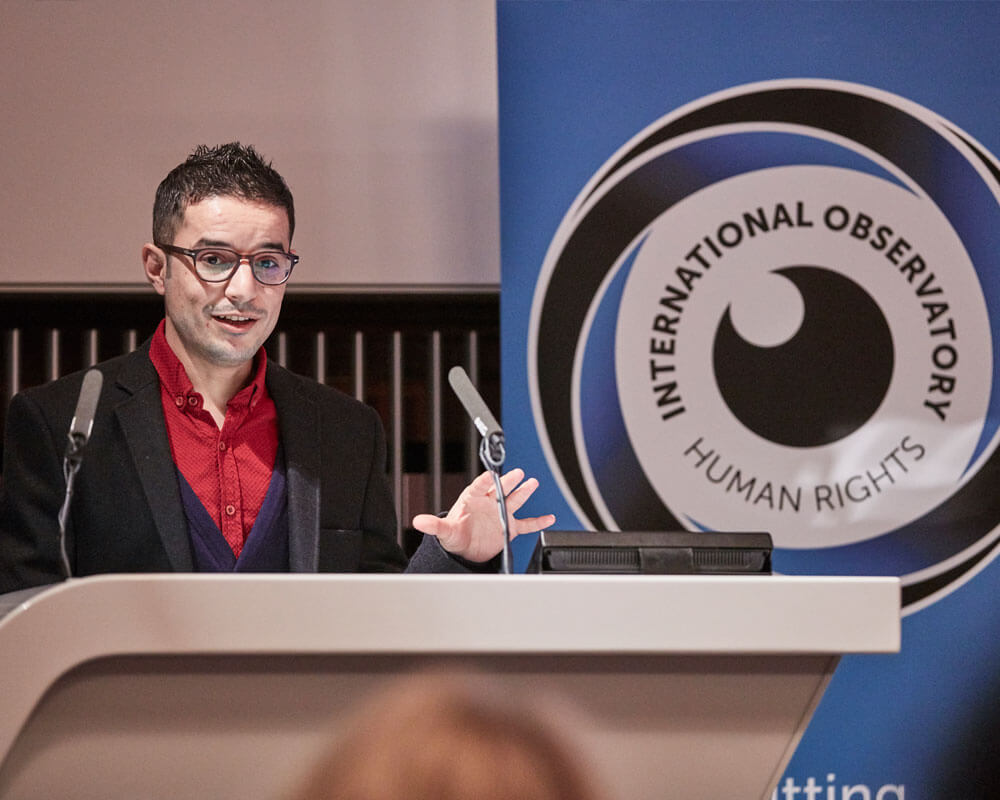
He advocated that ‘Change starts with the individual in society’. A recurring theme of the event. He reminded the audience that when you come from somewhere where there is nothing left then any chance is one to be grasped.
He said that his arrival in Canada was overwhelming and said that “With the sentence -‘Welcome to Canada’ – my life changed.”
The UK practitioners formed the first panel discussion on the community sponsorship structure and activities in the UK. Nick Coke of the Salvation Army shared his key learning from his experience of resettlement “it takes a community to resettle a family. …and it takes a family to make a community.” Describing the hurdles to find the people needed to resettle families.
Baroness Hamwee, Liberal Democrats Spokesperson in the House of Lords for Immigration, echoed this with the adage “it takes a village to raise a child”. She spoke of her work in the House of Lords to promote the ability for family reunification by enabling specific family members to be brought in to be resettled together.
Emma Williams, Chief Executive of Student Action for Refugees, spoke about the enthusiasm of students and universities across the UK who are already helping refugees “Universities have been amazing. We now have 58 universities that have created over 3-million-pound worth of special scholarships for refugees and asylum seekers.” Emma supports the community sponsorship because she hopes, that just as they do in Canada, naming will become an option and universities will be able to bring scholars who have the potential.
Lecturer in International Relations at King’s College London, Dr. Leonie Ansems de Vries introduced King’s Sanctuary Programme. The initiative, led by both students and staff, aims to raise awareness about refugee issues, provides a number of scholarships and also involves research to better understand the migration crisis, including the conditions of the places of transit and the effects of migration management policy. King’s hope to take their work a step further and become a community sponsor and sponsor either a family or a student to come and study in King’s.
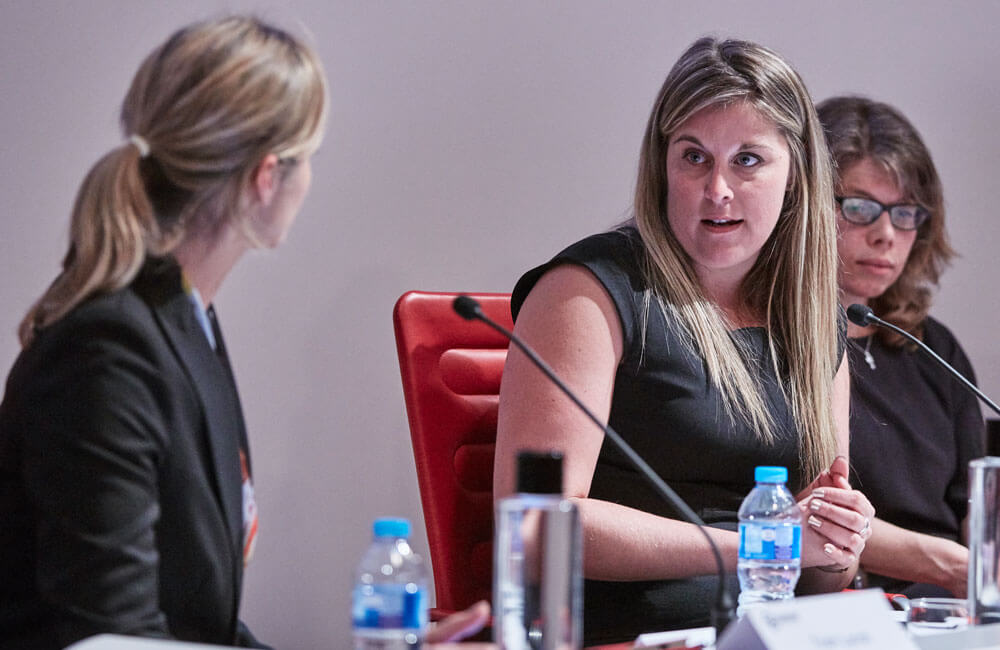
Michelle Williams is the Manager for Campus Engagement and Student Refugee Program at the World University Service of Canada “Our program is a small one comparatively when looking at the scope of the refugee crisis. 150 students a year is a drop in the ocean. But it is important not to underestimate the impact of an initiative like community sponsorship and like education schemes because the people that engage in these programmes translate that further into their communities, their employment and become long term advocates of refugee issues.”
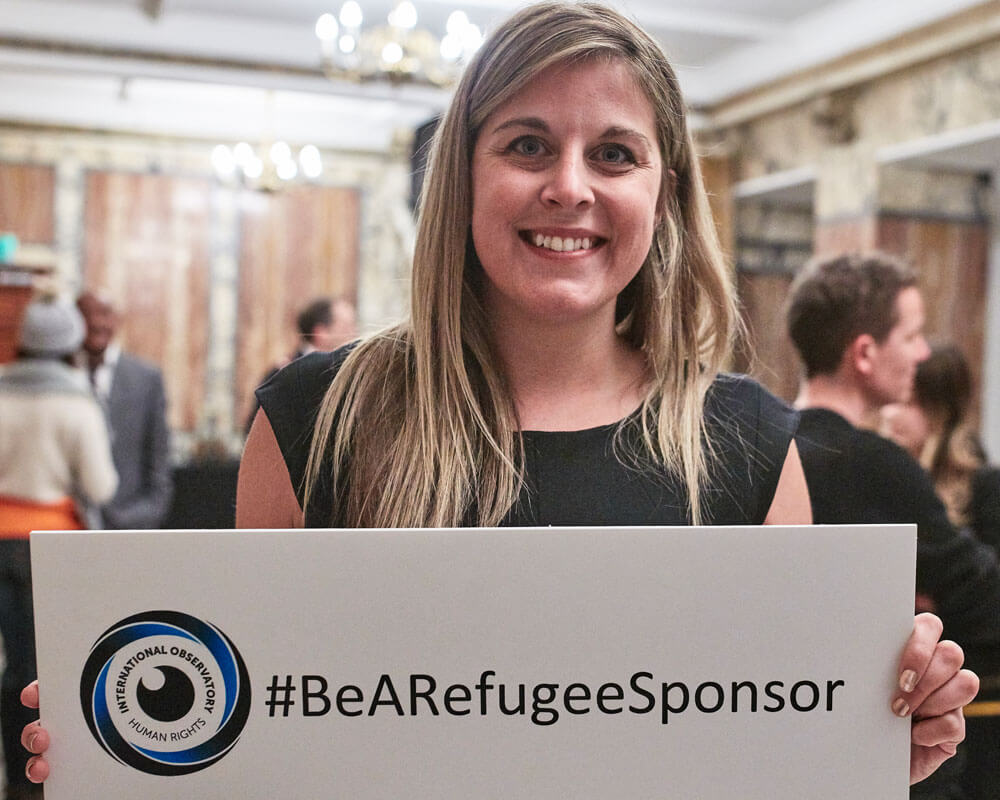
Pranav Chopra is the CEO of NEMI, a tea company where he employs refugees within the business to help them integrate. Refugees get the opportunity to engage with customers to improve their language skills and gain confidence and local work experience that helps them enter the UK work force. His message to other businesses: “If you have got a passion to make a difference just go ahead with it and reach out to bodies such as the ones that are here today.”
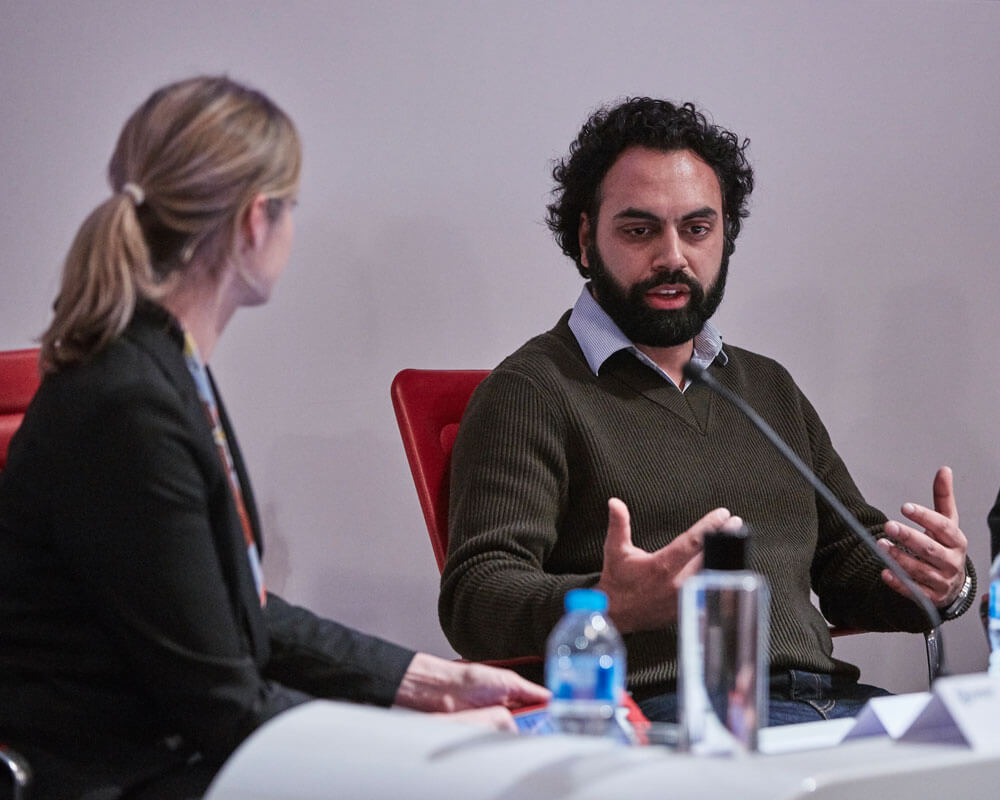
According to Chris Clements, Director of Reset and Social Finance, in the UK there are some businesses that want to enable their staff to support resettlement or get involved in the fundraising side. “For those who want to get involved we at Reset are really keen to engage part of our role is to inspire engage people equip and train but actually want to connect and convene and help businesses find a way to get involved. “
Mohammed was a medical student in his fourth year when he was forced to flee to Lebanon and was forced to clean cars in order to survive. He talked about the obstacles that aimed to regulate the overwhelming numbers of refugees arriving such as curfews in place for certain nationalities. In Lebanon Syrians have become the backbone for many industries that locals do not want to work in and instead of stealing local people’s jobs they are actually creating them. “Research actually shows that refugees and immigrants in general have a tendency to creating their own businesses so they end up creating jobs.”
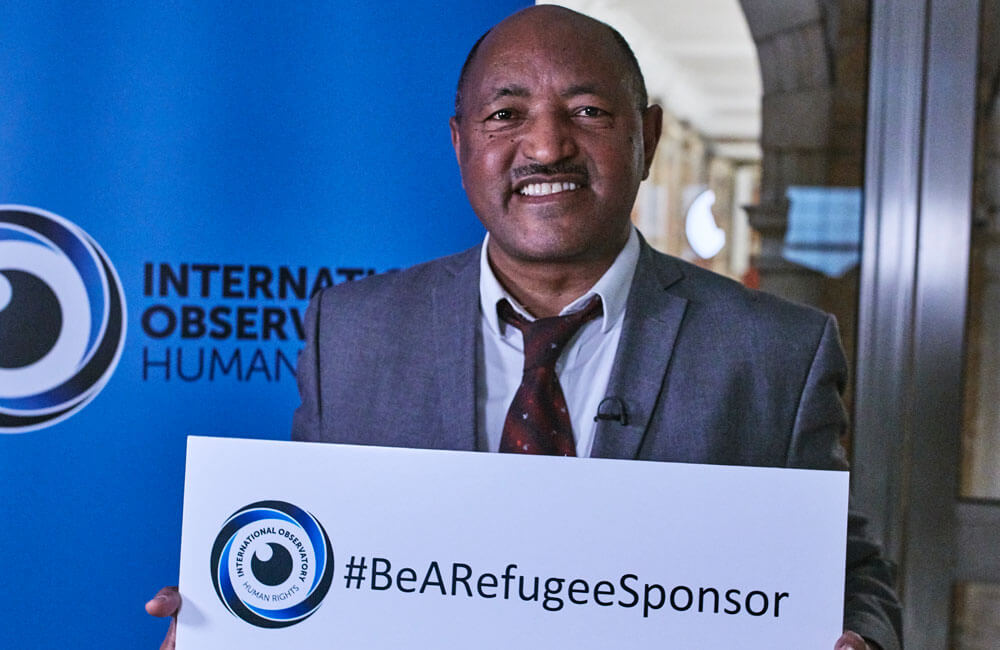
Notes for Editors:
Event: The benefits of Community Sponsorship of Syrian Refugees
Date: 6.30pm-9.00pm – Tuesday 27th February. 2018
Location: One Birdcage Walk, Westminster, London SW1H 9JJ
Background: Opportunities for the Expansion and Diversification of Refugee Sponsorship: In July 2016 the UK government introduced the Community Sponsorship scheme, giving local communities the opportunity to assume greater responsibility in the global refugee crisis by taking up a leading role in resettling refugee families into their neighbourhood.
The UK scheme is based on the successful Canadian model of Private Sponsorship of Refugees where businesses and schools combine opportunities for employment and higher education with resettlement.
Panelists:
- Mohammed Alsaleh, Refugee Sponsorship Trainer, Catholic Crosscultural Services B.C
- Bekele Woyecha – Senior Project Manager at the foundation of Sponsor Refugees of Citizens UK
- Major Nick Coke – Refugee Response Coordinator for The Salvation Army
- Baroness Hamwee – Liberal Democrat House of Lords Spokesperson for Immigration.
- Michelle Manks – Manager for Campus Engagement and Student Refugee Program at the World University Service of Canada
- Emma Williams – Chief Executive of Student Action for Refugees
- Dr. Ansems De Vries, Leonie – Lecturer in International Relations at King’s College London and Coordinator of the Migration Research Group
- Chris Clements – Director at Reset
- Pranav Chopra – CEO NEMI
Read more about the event.
IOHR TV is a human rights online TV channel. The International Observatory of Human Rights is a non-profit NGO based in London. Our team of journalists, researchers, human rights practitioners and multi-media professionals aim to prevent and end human rights violations worldwide. Our primary field research, in depth analysis and unique access represents the foundation for our goal to advocate, assimilate and secure human rights for all.
Press Contact: +44 7340 794920 || [email protected] || @observatoryIHR
www.iohr.rightsobservatory.org
- IOHR Joins Twenty-One Organisations Calling on the European Council and Commission to ‘prioritize calls to improve the country’s domestic human rights situation’ during discussions with President Erdoğan in Turkey 1 April 2021
- Turkey Tribunal publishes chilling report on the state of press freedom in Turkey 5 November 2020
- Turkey Tribunal’s publishes third report concluding impunity in Turkey has become the norm 1 October 2020
- International Observatory of Human Rights in collaboration with Turkey Tribunal publish new report on the state of Abductions in Turkey Today 18 September 2020
- The International Observatory of Human Rights signs joint statement with 22 Rights Organizations and Law Associations Calling on the Turkish Government to Release 48 Lawyers Arrested in Turkey on September 11 16 September 2020
- International Observatory of Human Rights and Turkey Tribunal announce partnership to bring to light Turkey’s dire human rights record 21 August 2020
- IOHR’s short film “Ethiopia: A New Dawn for Press Freedom” to be screened at Lift-Off’s First-Time Filmmakers Film Festival 26 June 2020
- More than 100 international human rights organizations and individuals join forces and sign open letter to save 4 journalists from the death penalty in Yemen 2 May 2020
- IOHR partners with Press Emblem Campaign to consider the future of human rights in Turkey prior to the UN’s Universal Periodic Review 3rd Cycle 27 January 2020
- IOHR partners with the United Nations Association – UK (UNA-UK) to consider the future of Human Rights funding on Human Rights Day 10 December 2019

